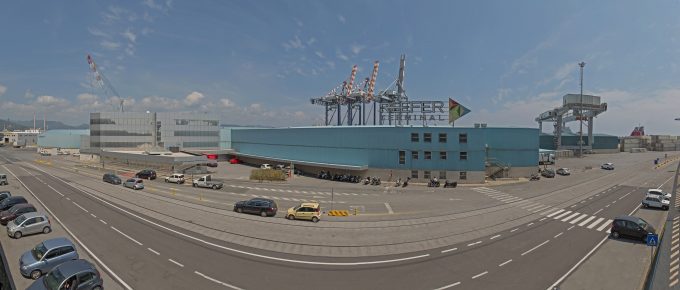It's all politics: Cosco-backed Peru port project at risk
China’s Peruvian dilemma

China Cosco Shipping Ports has invested €53m in APM Terminals’ Vado operation in return for a 40% stake, as merger and acquisition activity in the container terminal sector heats up.
The deal represents one of two Chinese investments in the Italian port, as APM Terminals announced that Hong Kong-based Qingdao Port International Development had purchased a 9.9% stake in the company.
The agreements include interests in both the reefer terminal – the largest refrigerated cargo facility in the Mediterranean – and the 800,000 teu deepwater facility under construction.
Drewry’s senior ports analyst, Neil Davidson, said M&A activity in the sector was “heating up”, with Chinese companies gaining a greater foothold.
He said: “It seems that Chinese mergers may have geopolitical reasons behind them, with the Chinese willing to pay a premium to get what they want.”
In July, the Greek parliament ratified China Cosco’s €368.5m majority purchase of Piraeus Port Authority, intended to strengthen logistics links between China and Europe as part of the One Belt One Road initiative.
Mr Davidson said the increasing M&A activity would likely lead to a contraction in the number of companies Drewry classifies as global/international terminal operators.
The consultancy currently lists 24, but expects this number to fall over the next 12 months, citing the acquisitions of Tertir by Yilport, and Grup TCB by APMT, as indicative of this trend.
Mr Davidson noted that reports have been circling over Yilport’s interest in acquiring Ports America, one of two port operators he expects to imminently join the list of classified GTOs – the other being Gulftainer.
“Being that Ports America is owned by a financial investor, it is likely that they will at some stage at least entertain an exit,” he continued.
“Yilport’s acquisition will be price dependent but it is one that seems to be on the table.”
Asked if increasing M&A activity would drown out small to medium sized operators, Mr Davidson expressed doubt that such a scenario would unfold.
“There are many terminals over the world and these can still compete effectively with their local knowledge, experience and expertise,” he said.
“There is also the question of investment aims – the big guys have certain investment requirements dictated by shareholders and if they cannot meet these they will not invest meaninglessly.”
The Vado development is predicated taking a slice of the cargo flowing through Italy’s most important cargo handling area on its north-east seaboard. Nearby Genoa remains the country’s largest gateway and saw a 2015 throughput of 2.24m teu.
APMT will merge the Reefer Terminal with a semi-automated container terminal when Vado becomes operational in 2018. The new facility will accommodate Ultra-Large Container Ships (ULCS) of up to 19,000 teu capacity, and is one of the few remaining greenfield sites under construction in southern Europe.
Mr Davidson added that companies have been “taking the foot off gas” as far as greenfield projects are concerned, while carriers have “all but ceased activity on this front”.
Speaking on the Vado stake sales, outgoing APMT chief executive Kim Fejfer said the operator is pleased to build upon its already close relationships with the two Chinese firms.
China Cosco holds investments in APMT’s container terminals in Qingdao, Zeebrugge and Suez, While Qingdao Port International has shared investments with APMT across China.
China Cosco said its investment in Vado was in line with its strategy of developing overseas shipping hubs and strengthening its global network of container terminals.
Comment on this article